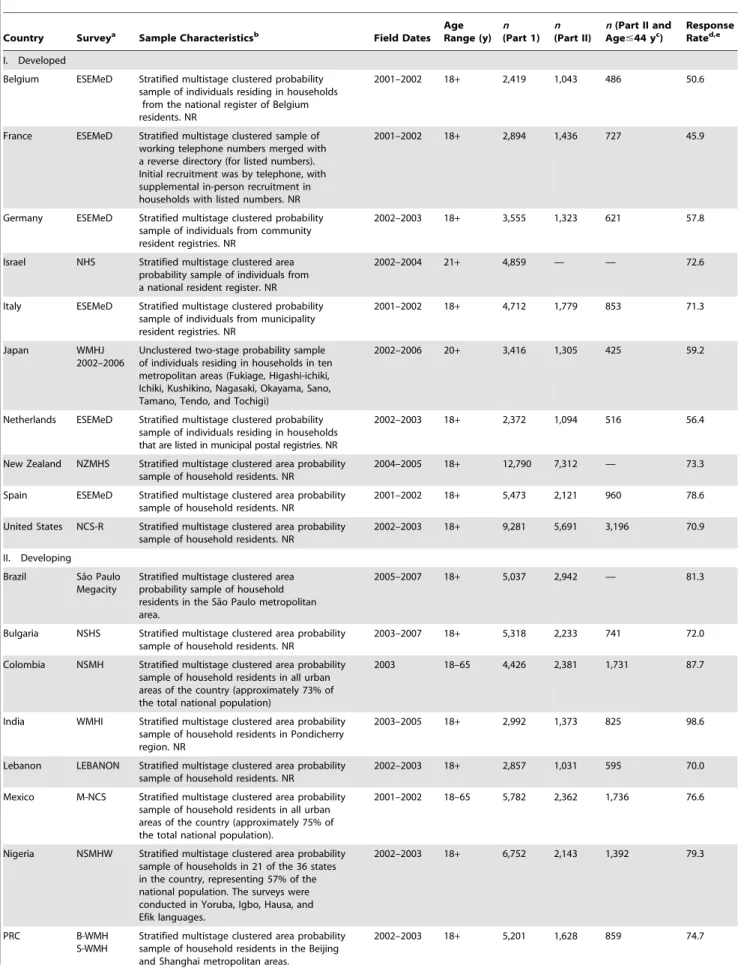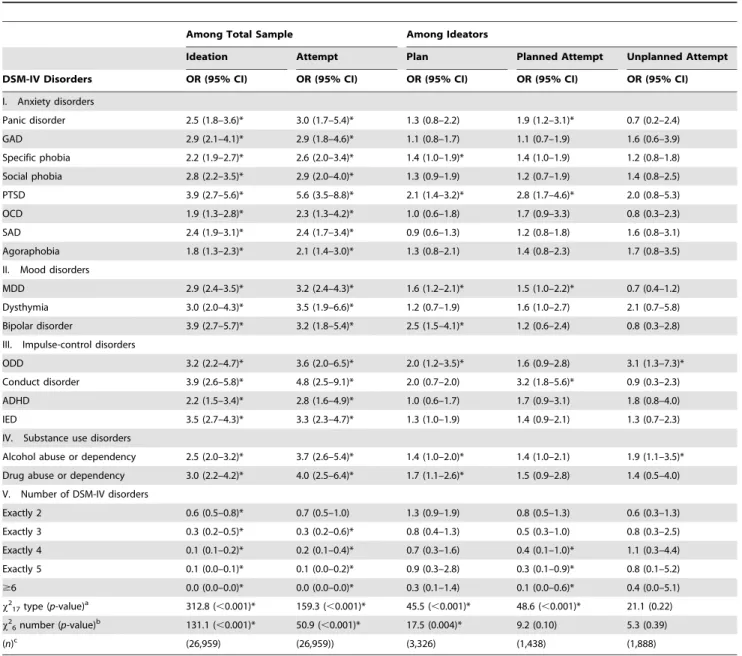Cross-national analysis of the associations among mental disorders and suicidal behavior: findings from the WHO World Mental Health Surveys.
Texto
Imagem




Documentos relacionados
Background: While the prevalence of mental disorders continues to increase globally and most mental health services in Abu Dhabi are delivered by the tertiary
The prevalence of common mental disorders increased as students claimed higher frequency and intensity of discriminatory experiences, going from 27.6% among those who were
The reports of 96 smoker patients with mental disorders were identified by code and organized into three themes: 1) The view of smoker patients with mental disorders about the
Conclusion : drug addicts with suicidal behavior are young people under the age of 30 presenting psychiatric comorbidity, mood disorders and/or depression, presence of family
The existing cross–sectional studies on men- tal health outcomes and race identified in this review suggest that the prevalence of mental health disorders is higher
In spite of the wide recognition of mental disorders as the highest risk factor for suicidal behaviour, the an- nouncement in 2006 of a national strategy for suicide prevention by
Methods: The São Paulo Megacity Mental Health Survey assessed psychiatric disorders on a probabilistic sample of 5,037 adult residents in the SPMA, using the World Mental
Methods: Cross-sectional community surveys asked 43,732 adults residing in 19 countries of the WHO World Mental Health (WMH) Surveys about chronic physical and mental health
